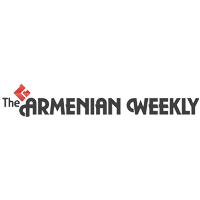2021 Media Watch Archives
Airlines have a recipe to reach zero emissions by 2050. The key ingredient: cooking oil
Los Angeles Times -
In the meantime, airlines that want to use more low-emission sustainable aviation fuel will have to pay up to four times as much for it as they pay for conventional fuel, which could mean higher airfares for everyone. “It’s not clear how we are going to get there,” said Jan Brueckner, a professor and chair of the economics department at UC Irvine’s Institute of Transportation Studies. “Maybe by 2050, it’s possible if a bunch of things come together.” [Subscription required, you can request an electronic copy of the article by sending an email to communications@uci.edu.] Read More
Who Is Austin Russell? How 'The Next Elon Musk' Made Billions
International Business Times -
Anew young billionaire has taken the mantle as the “world’s youngest self-made billionaire” after his self-driving technology company Luminar Technologies Inc. (LAZR) went public in December 2020. Some have taken to calling 26-year-old Austin Russell the "next Elon Musk." … The Newport Beach, California, native applied for his first patent at 13 and worked at a laser institute at the University of California at Irvine instead of going to high school. Luminar has a market capitalization of just over $6 billion. Shares of Luminar have taken a hit in the past year. On Dec. 29, 2020, shares of Luminar closed at $32.36. On Tuesday, shares of Luminar closed at $17.10. Read More
Luminar Tech founder devotes $70 million for new Orlando charitable fund
Orlando Sentinel -
Austin Russell, [founder and CEO of Luminar, which makes sensors for self-driving cars], the 26-year-old Orlando tech genius and billionaire, is plunging into the philanthropy sector with a personal donation of $70 million in stock to create a charitable fund in Central Florida …. He … attended classes at Beckman Laser Institute at the University of California, Irvine, as a high-school student. His goal, he said then, was to eradicate automobile accidents. Read More
Times OC newsletter
Daily Pilot -
Leave the wallet at home, soon you may be able to pay for items with a swipe of the sleeve. In a recently published paper, UC Irvine researchers detailed how they developed a flexible textile that allows clothing to communicate with nearby devices. The technology advances near-field technology, which is how people are able to use their smartphones to pay for items in a store. Aside from no-touch payments, the new technology could have a number of applications. People could no longer need a key or separate device to unlock their cars. Employees could also use their clothes rather than a badge to unlock facility gates. [Subscription required, you can request an electronic copy of the article by sending an email to communications@uci.edu.] Read More
Leave the wallet at home, soon you may be able to pay with a swipe of the sleeve
Daily Pilot -
UC Irvine researchers detailed how they developed a flexible textile that allows clothing to communicate with nearby devices. … “This means you could potentially keep your phone in your pocket, and just by brushing your body against other textiles or readers, power and information can be transferred to and from your device.” said co-author Peter Tseng, UCI assistant professor of electrical engineering and computer science. … Lead author Amirhossein Hajiaghajani, a UCI Ph.D student … said, “We want to create designs that not only are cool and inexpensive but can reduce the burden that modern electronics can bring to our lives.” [Subscription required, you can request an electronic copy of the article by sending an email to communications@uci.edu.] Read More
This New Extended-Range NFC Fabric Will Allow Clothes to Talk To Each Other
Wonderful Engineering -
Researchers at the University of California, Irvine (UCI) have created a novel, high-tech sort of material that foreshadows a future in which clothing gadgets may “talk” to one other and purchases can be made with a high-five or a wave of the arm. … “You’ve used near-field signaling applied sciences if you’ve held your smartphone or credit card near a reader to pay for a purchase order,” says co-author Peter Tseng [assistant professor of electrical engineering and computer science]. “Our materials work on the same principle, but we’ve broadened the range dramatically.” This means that you may keep your phone in your pocket and transfer energy and data to and from your device just by brushing your body against different textiles or readers.” Read More
Climate change could fuel bigger summer waves in Southern California
The Orange County Register -
“All these other things play a role, but waves are one of the most important causes of coastal erosion and flooding,” said Brett Sanders, an engineering professor who leads a UC Irvine team in coastal flooding and erosion hazards research. … “You could reach the point where the beaches don’t have a chance to recover,” said Sanders, who oversees the Metropolitan Beaches Projects online at sites.uci.edu/beaches. [Subscription required, campus-wide access provided by UCI Libraries. Sign-up here: https://guides.lib.uci.edu/news/ocregister] Read More
UC Irvine engineers create high-tech fabric that lets wearers pay for purchases with a high-five
KTLA5 -
“If you’ve held your smartphone or charge card close to a reader to pay for a purchase, you have taken advantage of near-field signaling technologies. Our fabrics work on the same principle, but we’ve extended the range significantly,” said Peter Tseng, UCI assistant professor of electrical engineering and computer science. “This means you could potentially keep your phone in your pocket, and just by brushing your body against other textiles or readers, power and information can be transferred to and from your device.” Read More
Extended-range NFC fabric lets clothes "talk" to each other
New Atlas -
“If you’ve held your smartphone or charge card close to a reader to pay for a purchase, you have taken advantage of near-field signaling technologies," explains co-author Peter Tseng, [UCI assistant professor of electrical engineering and computer science]. "Our fabrics work on the same principle ….” … “With our fabric, electronics establish signaling as soon as you hover your clothes over a wireless reader, so you can share information with a simple high-five or handshake,” says lead author Amirhossein Hajiaghajani. “You would no longer need to manually unlock your car with a key or separate wireless device, and your body would become the badge to open facility gates.” Read More
A Female Engineer in Armenia
Armenian Weekly -
The first thing [Knar Baghdassarian] did this year after graduating from the University of California Irvine with a Bachelor’s degree in chemical engineering was head straight to Armenia to participate in the AYF Internship in Armenia program. “I chose my field of study knowing that I would one day use my education to contribute to the advancement of Armenia’s scientific and technological sectors.” Read More









